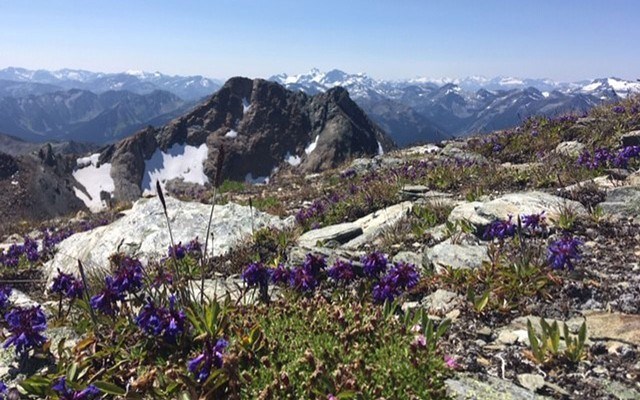I tend to go a little crazy in the summer.
My mania is based on basic math: the alpine is clear of snow for three months (maybe three-and-a-half on what skiers and snowboarders might call a bad year). That adds up to approximately 15 weekends. Now factor in work obligations, wedding invitations, holidays back home and you're left with 10 — 10 lousy weekends to get up in the alpine to run, hike and backcountry camp.
With a total of 52 weekends in a year that means I have around 19 per cent of my annual weekends to do what I love best.
And so I refuse to waste even a single one.
Summer is short! Life is short! Climb that mountain, jump in that lake, bag that peak, run that race.
Sure, I'm a touch burned out come Labour Day, but those memories of watching the sun sink behind the mountain peaks as every fibre of my puffy-coat-swaddled body relaxes will sustain me through the cold, dark winter days.
A study released earlier this summer proves I'm not entirely insane.
Published in the journal Behavioural Science (and highlighted in Alex Hutchinson's Sweat Science column in Outside, which is where I found out about it), "Levels of Nature and Stress Response" essentially found that while all types of interactions with nature can reduce stress, the most effective setting is untouched, natural wilderness.
Researchers compared three sites: a wilderness-type setting, a municipal park and a local fitness and recreation facility.
A total of 105 visitors to each of the sites gave a saliva sample before and after their visit to test for changes in the stress hormones cortisol and alpha amylase. They were also given a "perceived stress questionnaire" measuring four factors related to stress: worries, tension, joy and demands.
The results? Visitors to the most natural setting saw the highest levels of stress reduction measured by decreased levels of cortisol, demands, worries and an increased level of joy.
Those who visited the park saw just three indicators of reduced stress — reduced level of demands, worries, and increased level of joys. The rec facility, meanwhile, saw only decreased levels of demands and worries.
"This study adds to the growing corpus of literature that suggests a beneficial effect on reducing levels of stress and that the greater the level of nature the more pronounced the potential benefit is," it concludes.
So what does that mean in Whistler? Well, if you've been lounging in Rainbow Park every hot day (which, frankly, also sounds pretty great), you might feel less stressed, but you'd feel even better had you hiked up Rainbow Mountain into the pristine alpine, and away from all the volleyball players, Frisbee tossers, and loud picnickers.
Over the last few months, many people have told me about the hikes on their to-do list and how they wish they had crossed off more of them this summer. To that I say, there's still time! Stop waiting for the perfect weather, hiking buddy, or level of fitness. (Gore-Tex and a callout on your Facebook will solve most of those.)
We are so lucky to live in a place that offers a range of hikes for all abilities and comfort levels. (I'm far from an expert, but if you're stumped, email me. I love nothing more than talking ad nauseam, erm, passionately about our amazing trails — just promise you'll pack the 10 essentials, plan ahead, and not be one of the jerks who leaves trash behind. And please, for the love of God, don't leave bits of toilet paper on the trail).
Study or no study, I can promise you that time in the forest, away from your phone, will almost instantly melt away your stress.
Of course, the same is true in winter, but it's not quite as easy to access the remote areas you can visit in the summer months. You need expensive gear, avalanche training, and a tolerance for cold weather.
While skiing and snowboarding on Whistler Blackcomb terrain might help combat your stress, it likely falls more into the "municipal park" category examined in the study than the untouched wilderness level.
By my calculations, we have six to seven weekends left for easy alpine access — let's make it count.
Ěý



